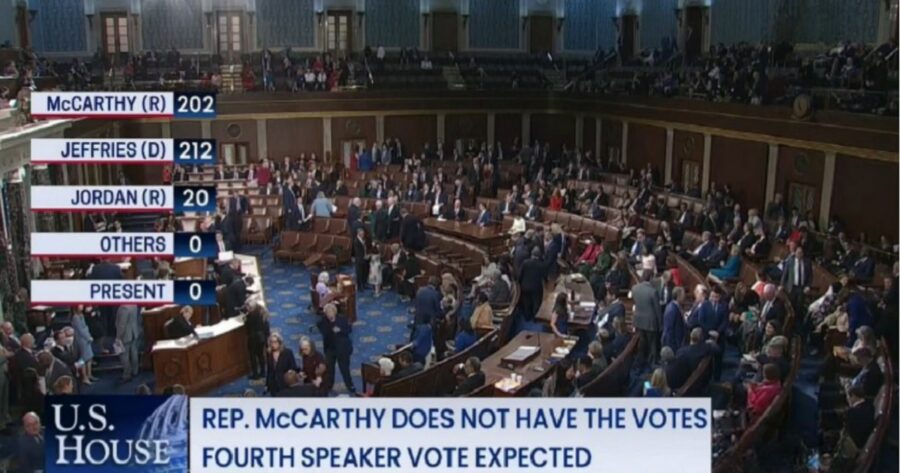U.S House Of Representatives Adjourns With No Speaker
- TDS News
- Trending
- U.S.A
- Western USA
- January 4, 2023

House Majority leader Kevin McCarthy, failed to secure the Speakership on three roll call votes
The United States House of Representatives has a long tradition of electing a speaker on the first roll call vote. In fact, it has not failed to do so since 1923. This is partly due to the strong group of Trump loyalists (Freedom Caucus) led by Jim Jordan, Matt Gaetz and Marjorie Taylor Greene, who have alleged to demand prominent committed roles in exchange for voting for the embattled party leader Kevin McCarthy, which he denied.
The speaker of the House is a highly influential position, serving as the leader of the majority party and the chief spokesperson for the House. The speaker is responsible for managing the floor of the House, setting the legislative agenda, and serving as a key mediator between the House and the Senate.
The process of electing a speaker begins with the convening of a new Congress, which takes place every two years following a general election. On the first day of the new Congress, members of the House gather in the chamber to conduct the roll call vote for speaker.
The speaker is elected by a majority vote of the members present and voting. If no candidate receives a majority on the first roll call vote, the process continues with additional votes until a speaker is elected.
The last time the House failed to elect a speaker on the first roll call vote was in 1923, when Representative Frederick Gillett of Massachusetts was elected on the ninth ballot. Since then, the House has consistently been able to elect a speaker on the first roll call vote, thanks in part to the strong institutional norms and practices that have developed within the chamber.
Despite the smooth process of electing a speaker in recent years, it is important to note that the position has not always been filled smoothly. Throughout American history, there have been instances of contentious speaker elections and even instances where the speaker’s position remained vacant for extended periods of time. However, these instances have become increasingly rare, thanks in part to the strong institutional traditions and norms that have developed within the House.
In comparison, Democrats elected Jefferies as the first African American House leader. Jefferies served as the Chair of the House Democratic Caucus, which is a leadership position within the party. He replaces long-serving leader Representative Nancy Pelosi of California. Jeffries won all 212 votes on the first ballot compared to McCarthy’s 203.
With the Republicans failing to elect a leader, the House adjourned for the night. McCarthy’s inability to garner support from his deeply divided party seriously jeopardized his political future. There are now legitimate talks within the party of electing a speaker outside the House of Representatives or causing with the Democrats to form a collation government. Both choices are nuclear options, and nothing is off the table.
Image source Cspan








